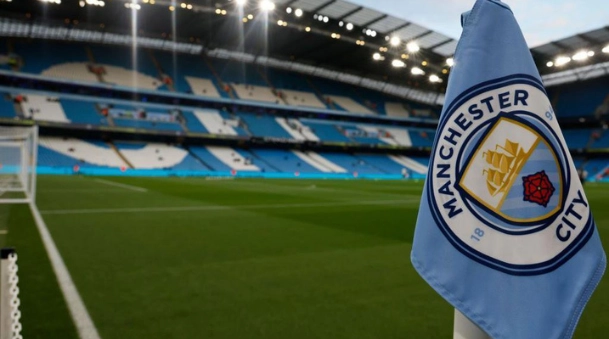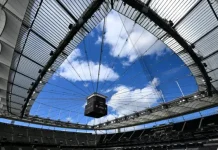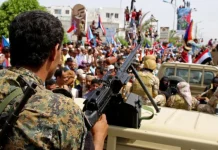Here are the excerpts from our recent discussion on ‘Is football a place of human rights violations and bad practices?’, held in Binarioll, Rome on February 22.
Dennis Panarese
What is Sportswashing?
In 2008, Manchester City Football Club were acquired by the Abu Dhabi United Group, an entity led by Abu Dhabi royalty and UAE politicians. Over the course of this ownership, the group has injected approximately £1.5 billion into the club, an investment that has been remarkably successful. Since 2008, City have won seven Premier League titles, eight domestic cup trophies, and the prestigious 2023 UEFA Champions League, a level of success that was considered unfathomable prior to the acquisition.
But this remarkable transformation has not escaped criticism, much of which has centred on the status of human rights in the UAE. As a result, City’s success has not simply distorted the financial landscape of club football, but also serves as one of the most prominent case studies of “sportswashing”.
Sportswashing is a term coined to elucidate the tactic of leveraging sports to project a favourable image of a country or organisation while concealing, downplaying or complicating its negative facets. This can manifest in various forms, such as one-off event-based strategies and longer-term investment-based strategies.
One-off event-based strategies refer to the practice of hosting major international sporting events, such as, the Olympics or the World Cup, in an effort to leverage their prestige and significance against the host’s reputation for wrongdoing. Longer-term investment-based strategies such as purchasing sports clubs can have an even more profound impact on the integrity of sports and the communities that support them.
While investment-based sportswashing may appear innocuous on the surface, its repercussions on the integrity of sports and the communities endorsing them can be severe. Man City’s takeover has not only had long term economic impacts on English and European soccer – the club currently face 115 charges of alleged breaches of the English Premier League’s financial rules – but also seen the club’s fans transformed into proxy defenders of the UAE government and Abu Dhabi royal family.
Addressing the problem
One potential solution involves augmenting transparency and accountability in sports ownership. Existing club ownership regulations in the English Premier League, for instance, disqualify potential owners for prior financial misdemeanours or convictions accounted for by UK legislation, criteria unlikely to affect the representatives of repressive state regimes.
Wider reform is also needed for soccer’s finance structures to ensure that mid or lower ranking clubs can forge a path to success without the need for the financial might of state owners. The City fans in the forum we examined were understandably bitter about the sport’s growing wealth gap and the power of select group of European ‘superclubs,’ and this bitterness was key to their justification of their club’s ownership by UAE state actors.
That sportswashing can provide repressive state actors with the potential advantage of the recruitment of a fervent, emotionally invested fanbase is a major concern. Instances of Man City fans harassing journalists (both online and in person) who have dared to criticise their club’s ownership attest to the potential of sportswashing as a weapon with the power to distort media coverage and, thus, avoid accountability. Future investigations of sportswashing – whether at Qatari-owned Paris Saint Germain or Newcastle United, recently acquired by the Saudi Arabian Public Investment Fund – should be mindful of this. The intent behind sportswashing may remain opaque, but its impacts are undeniable.
Valentina Vecchioni

The UAE is trampling human rights. Man City must finally speak out.
What is the price of success? If you’re a Manchester City fan with an interest in human rights, it’s a crisis of conscience. I’ve been here before. Eleven years ago my club was bought by former Thai prime minister Thaksin Shinawatra, who had presided over “very serious human rights violations” according to Amnesty. At the time, I wrote a sports column for the Guardian, and said that I could no longer reconcile my love for City with Shinawatra’s record so I was giving up on City.
Only football fandom is messier and more compromised than that. I soon discovered that I couldn’t give up on City just because my conscience told me I should. The club was in my blood. I’d backed myself into a corner, so I returned to City and gave up my column instead. Thankfully Thaksin was forced to sell City within a year because £800m of his assets were frozen in Thailand, and my inner voice screaming HYPOCRITICAL BASTARD was temporarily silenced.
This time round it’s even tougher. In 2008, Manchester City were bought by the United Arab Emirates’ Sheikh Mansour. The UAE is not a democracy, it is a federation of hereditary absolute monarchies. In other words, what the royals say goes – in every sphere of life. Sheikh Mansour is not only a member of the royal family of Abu Dhabi, he is deputy prime minister of the UAE, minister of presidential affairs and half brother of the president. Mansour has a lot of clout in the UAE.
In its 2017-18 report Amnesty condemned the UAE for unfair trials, lack of freedom of expression, a failure to investigate allegations of torture, discrimination against women and the abuse of migrant workers. City fans knew that the UAE had a dodgy human rights record. But many of us preferred to turn a blind eye. It was abstract – out of sight, out of mind. And there were endless positives. Mansour had invested billions in the club and the city; City were playing dream football – the first team to win 100 points in a Premier League season in 2017-18; we had the best manager in the world, and what’s more he cared – Pep Guardiola wore a yellow ribbon for political prisoners jailed after campaigning for Catalan independence. What was there not to love about City?
Well yesterday we found out, when British academic Matthew Hedges, who had been accused of spying, was given a five-minute trial without a lawyer, and sentenced to life in jail. UAE prosecutors said he had admitted to spying, though others claimed he is innocent. Jeremy Hunt, the foreign secretary, called it “totally unacceptable”, said there was “no evidence for the charges laid against him”, and warned of “serious diplomatic consequences” for the UAE, which Britain regards as an ally.
As for City, unsurprisingly not a word.
Just to reiterate, Sheikh Mansour is not just a wealthy individual in the United Arab Emirates: he and his family run the country and make all the important decisions. People live and die by their rulings. If I were as principled as I’d like to be, I’d denounce my club and walk away – of course, human rights trump a football club. But I tried that in 2007 – and failed. So for now, I’m sticking with City, while pleading with them to speak up for justice.
It is not good enough for the club to pretend this is not happening or it has nothing to do with them, and that if they ignore the fate of Matthew Hedges the issue will go away. It won’t – and the longer he is in the news, the more ethically bankrupt City will look– the glossy, globalised, media-friendly face of repressive government; launderer supreme of the politically unacceptable.
So what can Manchester City do? I beg City officials to state publicly that handing down a life sentence to a man without a fair trial is unacceptable, and that the club will do what it can to pressure the UAE to change its mind, and to address its wider human rights issues. Just as Sheikh Mansour has transformed City for the good, City now has the power to change the UAE for the good. Pep, over to you.
Luca Pepe

The United Arab Emirates (UAE) is a strong and continued perpetrator of outrageous human rights abuses, yet its presence in international football tends to overshadow its negative human rights record. The UAE’s clever global influence comes in the form of Manchester City, a prominent and beloved British football team. Owned by the UAE’s Deputy Prime Minister Sheikh Mansour, roughly £1.45 billion has been invested into Manchester City – “sportswashing” the UAE’s negative image and rendering much of the world unaware of the ongoing human rights violations.
The UAE restricts and criminalizes free expression, arresting peaceful critics of the state. Additionally, the UAE has participated in likely war crimes, and has forcibly disappeared and tortured detainees in UAE-run detention facilities in Yemen. Child sex-trafficking still exists in the UAE and the country has done little to affect change for migrant workers, who face punishment for leaving their employers through the kafala system. The UAE also continues to permit domestic violence and marital rape, among other violations of women’s rights, and criminalizes same-sex relations.
Just last May, prominent Emirati human rights defender Ahmed Mansour was handed a ten-year prison sentence for ‘defaming’ the country on social media, after being held in solitary confinement without access to a lawyer. Two lawyers who had previously defended Ahmed Mansour in the “UAE 5” trial, Dr. Mohamed al-Mansoori and Dr. Mohamed al-Roken, were also arrested, raising concern from the International Bar Association Human Rights Institute which issued a statement on the worsening situation for human rights lawyers in the UAE.
Matthew Hedges, a British PhD student, recently made headlines when the UAE sentenced him to life in prison on charges of ‘espionage’ in November 2018, after months in solitary confinement and a five-minute trial during which his lawyer was not present. Though Hedges ultimately received a presidential pardon following international pressure, his case sparked a diplomatic crisis with the United Kingdom (UK). Not all were outraged however; skepticism and silence defined the response of Manchester City and many of their fans.
The loyalty one has to their football team is often underestimated, and the loyalty fans have towards Manchester United plays right into the hands of Sheikh Mansour and the UAE. The UAE’s ownership of the immensely popular Manchester City has allowed the country to “sportswash” its image and build up its influence in the West, thereby bolstering efforts to remain in power and overshadowing human rights abuses. Manchester City and their following have an opportunity to use this same platform to speak up against the repressive government of the UAE and call for an end to the falsely glamorous image the UAE curates.

Matthew Hedges was fortunate in his release, but Ahmed Mansoor and many other prisoners of conscience remain detained in the UAE. Additionally, human rights defenders, women, children, migrant workers, and Yemeni civilians alike remain at the mercy of the UAE government. Manchester City and their fans should ask themselves whether a state with a record of human rights abuses should be allowed to invest in British football if it serves as a way for the UAE to project soft power around the world and hide its true colors.















